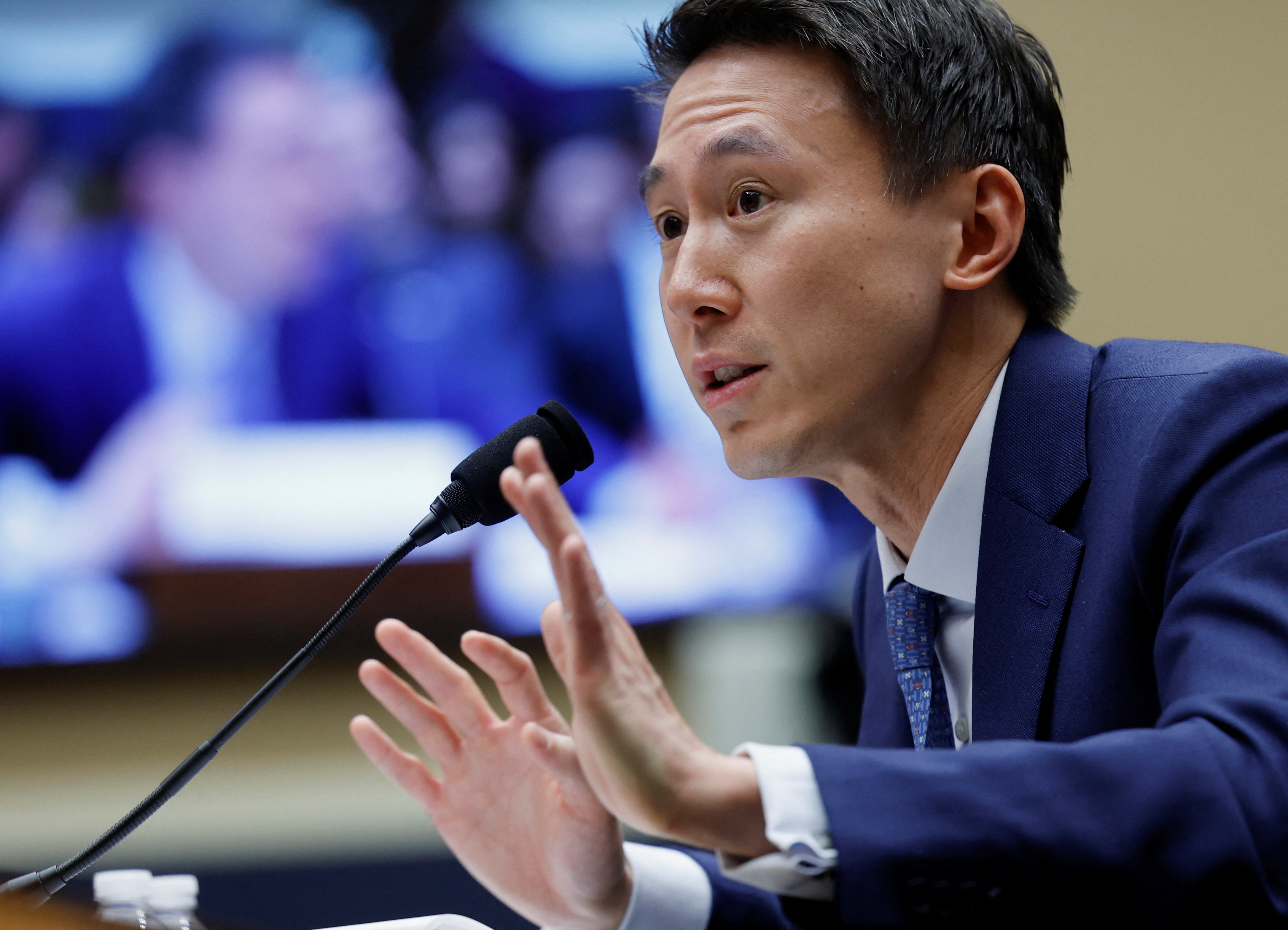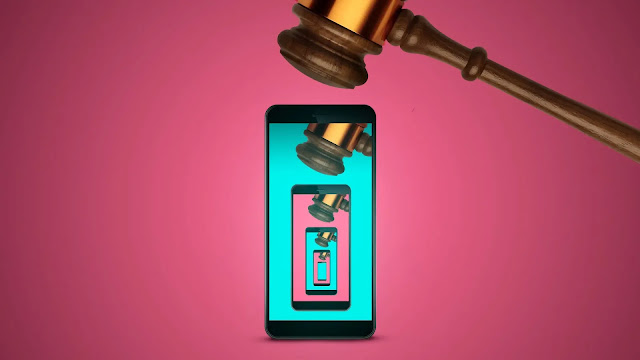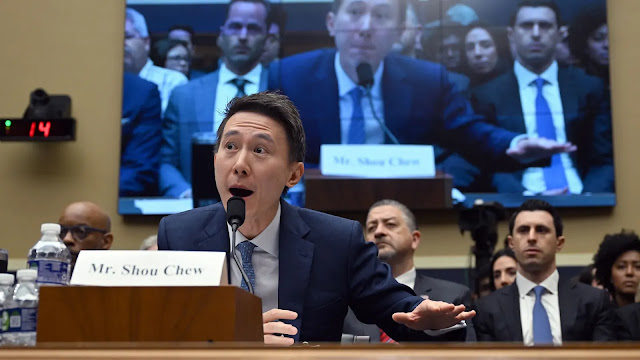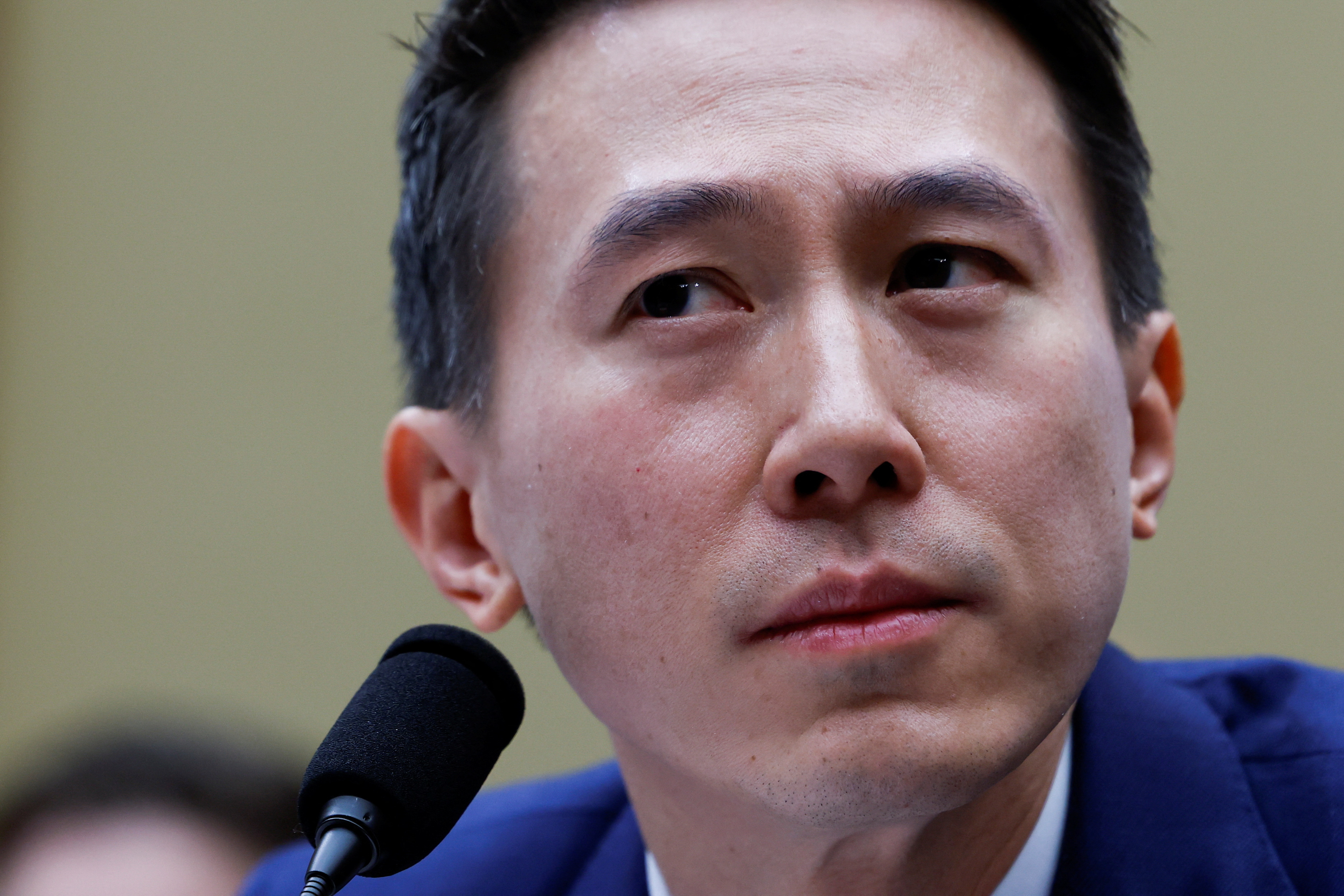A recent ban on TikTok use on U.S. government-owned devices, coupled with new legislation in Congress seeking to block the app, have fueled expectations the popular Chinese-owned platform could soon be barred nationwide.
Adding to the perception, last week the company said the Biden administration had demanded TikTok's owners divest their stakes in the popular video app or face a possible ban.
It is unclear how the Biden administration might implement such a ban if it chose to move forward with a plan, but if history is any guide, a prohibition is unlikely to take effect any time soon. Here is why:
TRUMP
Citing national security concerns, then-President Donald Trump told reporters he planned to ban TikTok in July 2020, threatening to shut it down if it could not be sold by its Chinese owner Bytedance to a U.S. buyer.
In August, he issued two executive orders, one banning the app and another demanding Bytedance sell its U.S. business to U.S. companies.
But Trump's attempt to block TikTok with an executive order derived its power from the International Emergency Economic Powers Act. That act exempts the import or export of "informational materials," and "personal communication" through the Berman Amendment, which sought to protect speech.
"Banning the app - or any like it - would likely still be challenged under the First Amendment. It's important to keep in mind the Berman Amendment under IEEPA is a proxy for the First Amendment. Even if it's sidestepped, greater legal questions remain," said John Costello, who oversaw the creation of the office at the Commerce Department to examine certain foreign technology for national security threats.

Meanwhile, the executive order forcing a divestment remains mired in negotiations between TikTok and the Biden administration over a potential national security agreement that could resolve the concerns prompting the ordered sale.
HOW A BILL BECOMES A LAW
Washington lawmakers have also launched two separate bills aimed at allowing the president to ban apps like TikTok on grounds they pose a risk to U.S. national security. But the bills, one in the House of Representatives and the other in the Senate, still need companion bills in the other chamber, as well as enough support to pass both houses and then President Joe Biden's signature. The White House supports the Senate bill, known as the RESTRICT Act.
Considered the most likely to succeed, the Act would still likely take at least several months before it could garner enough support for a successful vote and the president's signature. It could also be weakened before it reaches Biden.
Even if the RESTRICT Act is passed this year, the Commerce Department has up to six months to begin reviewing transactions with the new authorities, and up to six additional months to complete the reviews and take action.
TIKTOK'S DAY IN COURT
TikTok is likely to challenge any attempt to ban the app. The company was ultimately successful in quashing Trump's effort to ban the app in the U.S.
“The First Amendment protects Americans' right to access social media platforms of their choice," said Jameel Jaffer, the executive director of the Knight First Amendment Institute at Columbia University. "To justify a TikTok ban, the government would have to demonstrate that privacy and security concerns can't be addressed in narrower ways. The government hasn't demonstrated this, and we doubt it could. Restricting access to a speech platform that is used by millions of Americans every day would set a dangerous precedent for regulating our digital public sphere more broadly,"
U.S. lawmakers on Thursday battered TikTok's CEO about potential Chinese influence over the platform and said its short videos were damaging children's mental health, reflecting bipartisan concerns about the app's power over Americans.
CEO Shou Zi Chew's testimony before Congress did little to assuage U.S. worries over TikTok's China-based parent company ByteDance and added fresh momentum to lawmakers' calls to ban the platform nationwide.
Over five hours of testimony, Chew repeatedly denied the app shares data or has connections with the Chinese Communist Party and argued the platform was doing everything to ensure the safety of its 150 million American users.
Chew said TikTok for more than two years has been "building what amounts to a firewall to seal off protected U.S. user data from unauthorized foreign access. The bottom line is this: American data stored on American soil, by an American company, overseen by American personnel," Chew said.
But not a single lawmaker offered support for TikTok, as they deemed Chew's answers on China evasive and aired concerns over the power the app holds over U.S. children.
Others accused TikTok of promoting content that encourages eating disorders among children, illegal drug sales, and sexual exploitation.
"TikTok could be designed to minimize the harm to kids, but a decision was made to aggressively addict kids in the name of profits," said Representative Kathy Castor, a Democrat, at the House of Representatives Energy and Commerce committee hearing.
Chew responded to many pointed questions by saying the issues were "complex" and not unique to TikTok.
The company says it has spent more than $1.5 billion on data security efforts under the name "Project Texas" which currently has nearly 1,500 full-time employees and is contracted with Oracle Corp (ORCL.N) to store TikTok's U.S. user data.
But critics were not appeased as the company failed to announce any new efforts to safeguard privacy.
Chew, who began his testimony by referring to his Singaporean roots, said: "We do not promote or remove content at the request of the Chinese government."
He added: "It is our commitment to this committee and all our users that we will keep (TikTok) free from any manipulation by any government." He said the app strictly screens content that could harm children.
It is not clear how lawmakers will proceed after the hearing or how quickly they might move to pass legislation to strengthen the Biden administration's legal powers to ban TikTok.
'NOT ABOUT THE OWNERSHIP'
Some 20 U.S. senators - 10 Democrats and 10 Republicans - have backed bipartisan legislation giving President Joe Biden's administration a path to ban TikTok, and the app's fate has added a new element to tensions between Washington and Beijing.
TikTok last week said the Biden administration demanded its Chinese owners divest their stakes or face a potential ban.
When asked about a potential divestiture, Chew said the issue was "not about the ownership" and argued U.S. concerns could be addressed by moving data to its U.S. storage centers.
China's commerce ministry said forcing TikTok's sale "will seriously damage the confidence of investors from all over the world, including China, to invest in the United States," and that China would oppose any sale.
Some lawmakers cited China's comments to reject TikTok's contention that it is separate from the Chinese government.
At Thursday's House hearing, Representative Neal Dunn asked Chew if ByteDance has spied on Americans at Beijing's request. Chew answered, "No."
Republican Dunn then asked about U.S. media reports that a China-based team at ByteDance planned to use TikTok to monitor the location of specific U.S. citizens, and repeated his question about whether ByteDance was spying.
"I don't think that spying is the right way to describe it," Chew said. He went on to describe the reports as involving an "internal investigation," but was cut off by Dunn, who called TikTok's widespread use "cancer."
Shares of U.S. social media companies that compete with TikTok for advertising rose on Thursday, with Facebook parent Meta Platforms Inc (META.O) closing 2.2% higher and Snap Inc (SNAP.N) up 3.1%.
"SNAP and META are up on the idea that the CEO didn't do well and TikTok may be banned," said Thomas Hayes, chairman and managing member of Great Hill Capital. "I think the rumors of TikTok's demise may be greatly exaggerated."
'SAVE OUR CHILDREN
Democratic lawmaker Tony Cardenas said Chew was a "good dancer with words" and accused him of avoiding tough questions on evidence that the app has harmed children's mental health.
Chew said the company was investing in content moderation and artificial intelligence to limit such content.
Representative Diana DeGette, a Democrat, said TikTok's efforts to prevent the spread of misinformation on the platform were not working.
"You gave me only generalized statements that you're investing, that you're concerned, that you're doing work. That's not enough for me. That's not enough for the parents of America," DeGette said.
Representative Gus Bilirakis showed the committee a collection of short TikTok videos that appeared to glorify self-harm and suicide, or outright tell viewers to kill themselves.
"Your technology is literally leading to death," Bilirakis said. "We must save our children from big tech companies like yours, who continue to abuse and manipulate them for your own gain."
Chew told Bilirakis that TikTok takes the issue of suicide and self-harm "very, very seriously."
TikTok is not available in China, where ByteDance offers a Chinese equivalent Douyin. Still, the hearing was closely watched in the country, with related news posts gathering millions of views on the microblogging site Weibo where many users expressed sympathy for Shou and criticized U.S. "hostility."
Hu Xijin, former editor-in-chief of state-run tabloid Global Times, said in a tweet on Thursday: "The U.S. is robbing TikTok this time, but it is hypocritically going through the process of a hearing."
ByteDance did not reply to a request for comment.



